With the Milton campus scheduled to open in 2024, and a vibrant campus presence in both Brantford and Waterloo Region, Laurier’s students, faculty and staff are fostering a culture of engagement and innovation across southern Ontario and beyond.
Laurier’s urban integrated Brantford campus continues to be a catalyst for enhanced vitality in the community’s core. In 2021-2022, Laurier made progress on its reimagining of the One Market building as a campus and community hub with the opening of an 8,000 square-foot student lounge on the main level. The new multi-purpose space is a social hub for students and special events, and centralizes student supports. One Market is now also home to a new Senate and Board Chamber, classrooms, a student-funded games lounge, Career and Co-op office, and Wilfrid Laurier International College, which welcomed its first class in the fall of 2022.
The Brantford campus also grew its academic offerings, with the provincial announcement of the expansion of Laurier’s Bachelor of Education program to Brantford. The expansion will create 60 new seats for teacher education programming in fall 2022, with the inaugural class being fully enrolled. An additional 60 seats will be added in fall 2023. This year also saw the expansion of Computer Science offerings to Brantford, providing an excellent complement to existing programs.
In 2021-2022, Laurier made significant progress on plans for the Milton campus as the university prepares to welcome its first students to the campus in fall 2024. In January 2022, Laurier appointed Ernest Yanful as senior advisor in the establishment of Laurier’s engineering programs and initiatives in Milton. Yanful, a professor emeritus in the Department of Civil and Environmental Engineering at Western University and the founding provost at the Africa Institute of Sanitation and Waste Management, will lead the program approval and accreditation process for Laurier’s engineering programs through the Ontario Universities Council on Quality Assurance, Ontario Ministry of Colleges and Universities, and Engineers Canada.
The university also made significant progress in campus master planning, developing design principles based on extensive consultations. The Milton campus will be a lively and inclusive space with a focus on sustainability and zero-carbon footprint design. The campus will incorporate Indigenous worldviews and perspectives in the design and use the protected Greenbelt lands as a living laboratory for faculty and students studying planetary health and environmental engineering.
Laurier’s original campus in Waterloo and Lyle S. Hallman Faculty of Social Work in Kitchener make up our Waterloo Region locations. In Waterloo, Laurier broke ground on two major capital projects to rejuvenate the campus. In April 2022, the university celebrated a milestone in its Making Space for Music campaign, with a groundbreaking celebration for the Faculty of Music’s new Savvas Chamberlain Music Building. Construction on the project began in May. The Savvas Chamberlain Music Building, named to recognize the $4 million gift from the Savvas Chamberlain Family Foundation, will create an exceptional new entranceway to the Waterloo campus and a modern lobby and increased practice rooms for students. An outdoor public amphitheatre will also be a part of the project, thanks to a $350,000 investment from the City of Waterloo.
Also in the spring of 2022, the university began renovations on the much-loved Alumni Field to ensure the greenspace will continue to be a place for gathering and recreation for generations of students to come. The project was made possible thanks to a generous $800,000 donation from the Wilfrid Laurier University Alumni Association (WLUAA). The Wilfrid Laurier University Students’ Union (WLUSU) and the Graduate Students’ Union (GSA) also supported the project. Laurier leadership and representatives from WLUAA, WLUSU and GSA celebrated the project with a groundbreaking ceremony in April.
Since 2010, Laurier has partnered with the Government of the Northwest Territories in cold regions research. In 2021-2022, Laurier significantly grew its research impact in the north in climate change and water resources, securing more research funding for wildlife, climate change, and water resource research.
Frances Stewart, assistant professor of biology, was named the Tier II Canada Research Chair in Northern Wildlife Biology. Stewart’s research in northern Canada has important implications for the protection of animal species, such as caribou, and natural resources.
Jennifer Baltzer, associate professor of biology, was named the Tier I Canada Research Chair in Forests and Global Change. Baltzer’s work, which has received international attention, examines how climate change is impacting forest ecosystems in the north via increased wildfire activity and permafrost thaw.
Laurier will also expand its research on aquatic ecosystems in the north with the appointment of professor of biology Heidi Swanson as the inaugural Jarislowsky Chair in Sustainable Water Futures. This research chair, established through a $2-million gift from the Jarislowsky foundation and matched by Laurier, focuses on sustainable resource management and adaptation to climate change. Swanson will lead an interdisciplinary research program focused on how climate change and other stressors affect the health of aquatic ecosystems, and aim to support the responsible stewardship of Canada’s water and natural resources.
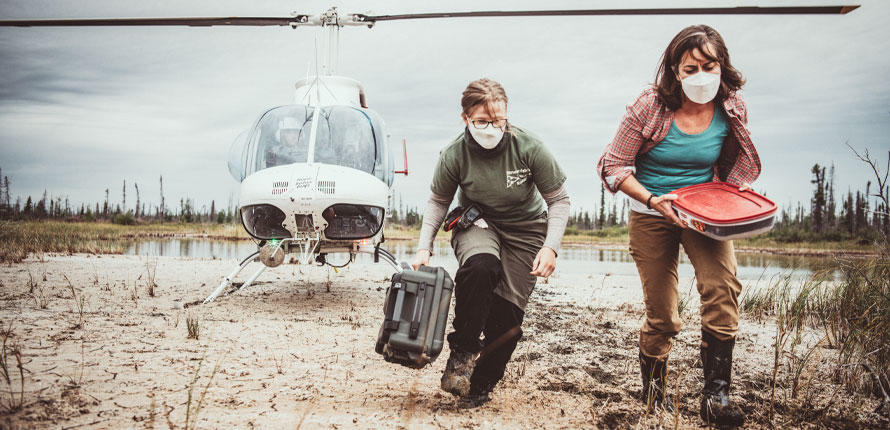
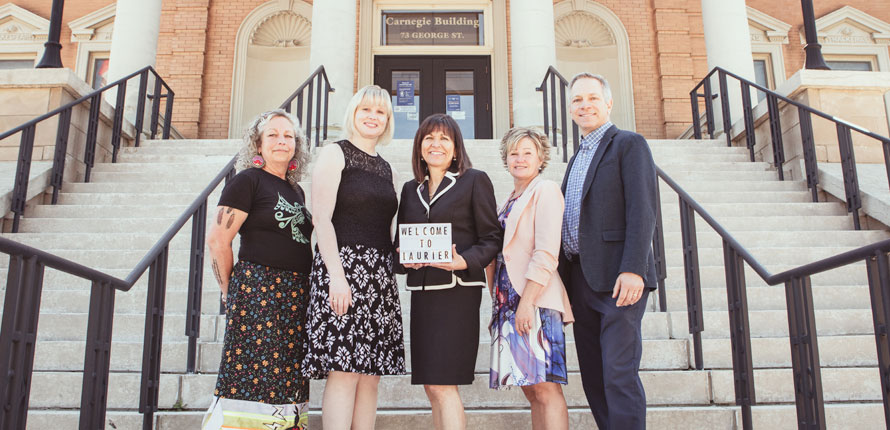
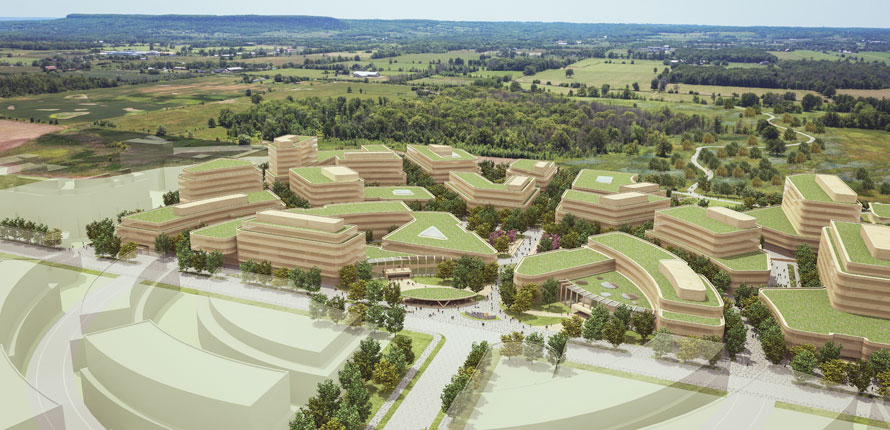
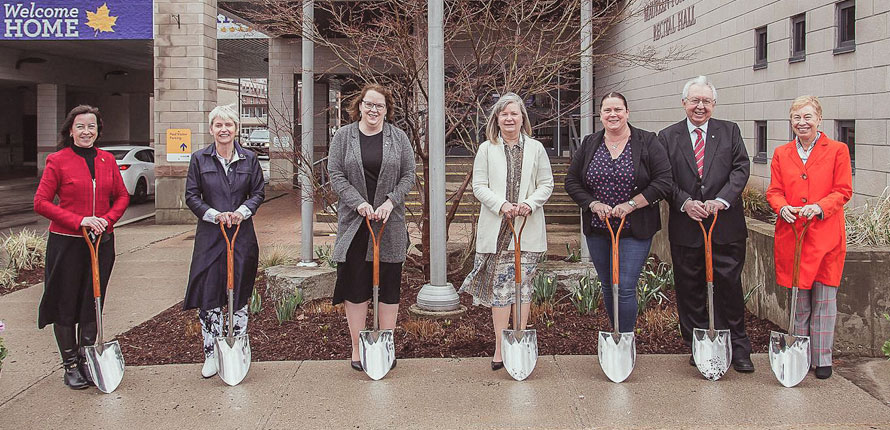
Laurier facilitates mutually-supportive relationships with alumni, other educational institutions, government, Indigenous communities, industry, and the not-for-profit sector.
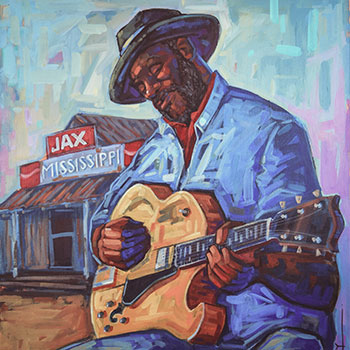
In May 2022, the Laurier Centre for Music in the Community (LCMC) hosted the Mel Brown Music Festival and Symposium, which celebrated Black Heritage in Waterloo and honoured the legacy of Mel Brown, an American-born Blues musician who spent the final 20 years of his life as an active musician in Kitchener. The idea of celebrating Mel Brown’s legacy was planted in a meeting hosted by THEMUSEUM CEO David Marskell. Award-winning artist and recent Laurier MA in Community Music graduate, Carlos Morgan, served as artistic director and curated the live shows, hosted at Kitchener-Waterloo venues, including The Jazz Room, THEMUSEUM and the Kitchener Public Library; Maxwell’s Concerts and Events hosted the symposium. The event brought together a diverse group of community participants, including Black musicians, scholars, students, and industry partners to enjoy live music and engage in dialogue on anti-Black racism and the barriers racialized students face in education.
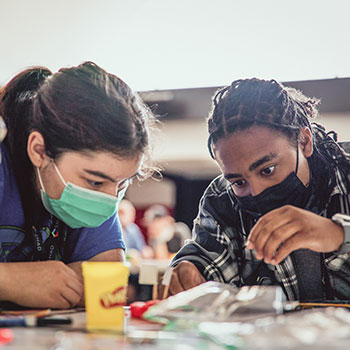
In March 2022, the Faculty of Education announced its partnership with Waterloo-based education technology company InkSmith to deliver STEM – science, technology, engineering and mathematics – programming to grades 6 to 9 students across Canada. The Mission on the Moon program, supported by the Canadian Space Agency (CSA) will feature six free online courses that will enable youth to engage with various space-theme concepts, inquiry-based coding, and robotics activities. The program is projected to reach 14,000 educators and engage nearly 300,000 Canadian youth, with a specific emphasis placed on student groups facing barriers to STEM education, such as Indigenous, Black, people of colour, and women and girls. Development of the project is now underway and will be completed by March 2024.
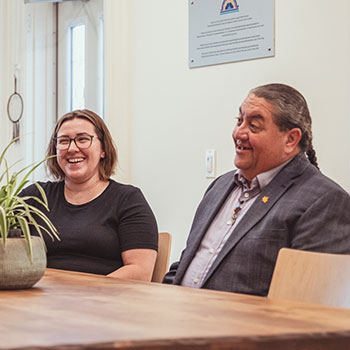
In 2022, Laurier completed renovations on the Indigenous Student Centres on the Brantford and Waterloo campuses. With the generous support of the Grundy Family, the enhanced Onkwehonwè:ne Brantford Campus provides a vibrant space for Indigenous students and the newly created Grundy Indigenous Scholar positions will help attract outstanding Indigenous scholars to Laurier, growing Indigenous scholarship and impact beyond the Brantford campus. In Waterloo, Lucinda House was renovated and is the new Nadjiwan Kaandossiwin Gamik Indigenous Centre, thanks to a generous donation from the Lyle S. Hallman Foundation and further support from WLUAA, WLUSU, the GSA, and Ken Flood. Additional upgrades to the Waterloo space will continue over the next few years.
Laurier is pursuing enhanced and accelerated initiatives to integrate Indigenous knowledges and practices across the university.
In 2021, Laurier’s Office of Indigenous Initiatives and Office of Research Services worked closely together to support Indigenous undergraduate students at Laurier to apply for 16-week summer research positions through the Natural Sciences and Engineering Research Council of Canada’s Undergraduate Student Research Award (USRA) program. The program’s mission is to develop student potential for research careers in natural sciences and engineering and encourage them to pursue graduate studies in those fields. Eight Indigenous undergraduate students at Laurier received funding to work with faculty mentors on individual research projects. Projects included studying how the COVID-19 pandemic impacted supply chains in remote communities in the Northwest Territories; building out the taxonomy of plant species; and Indigenous approaches to environmental stewardship.
In fall 2021, Laurier’s Indigenous Initiatives office and the Friends and Neighbours Group, in support of the Woodland Cultural Centre’s Save the Evidence Campaign, hosted two virtual community events to raise awareness of the legacy of residential schools and the work to turn the former Mohawk Institute Residential School in Brantford into an interpretive heritage site to educate about Canada’s residential school history. Bestselling author Tanya Talaga gave a keynote entitled Truth Before Reconciliation, and filmmaker Mike Downie and Bob Watts, chair of the Gord Downie & Chanie Wenjack Fund, presented a virtual screening of Downie’s film Secret Path, including a facilitated conversation on how their organization is supporting reconciliation efforts across Canada.
In November 2021, the Women’s Entrepreneurship Centre in the Lazaridis School of Business and Economics welcomed its first cohort of the Indigenous Women Entrepreneurs program. Twenty-nine women from across Canada and in New York participated in the 16-week program, where 10 Indigenous women business leaders presented on topics related to building successful business models, accounting, taxation, branding, social media marketing and sales. Women entrepreneurs in the program are developing businesses events and consulting, catering, retail, and clothing, among others.
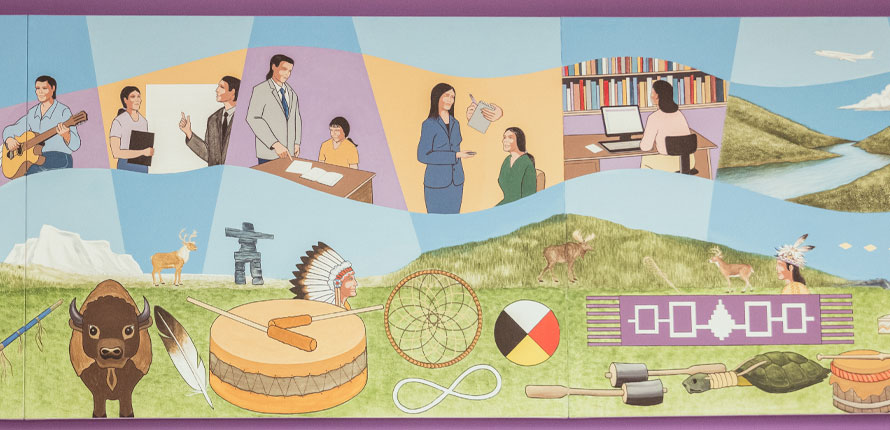
Laurier excels at creating a culture of engagement that develops the whole person and builds reciprocal community relationships by increasing internationalization of the university to cultivate global citizens with strong intellectual competence.
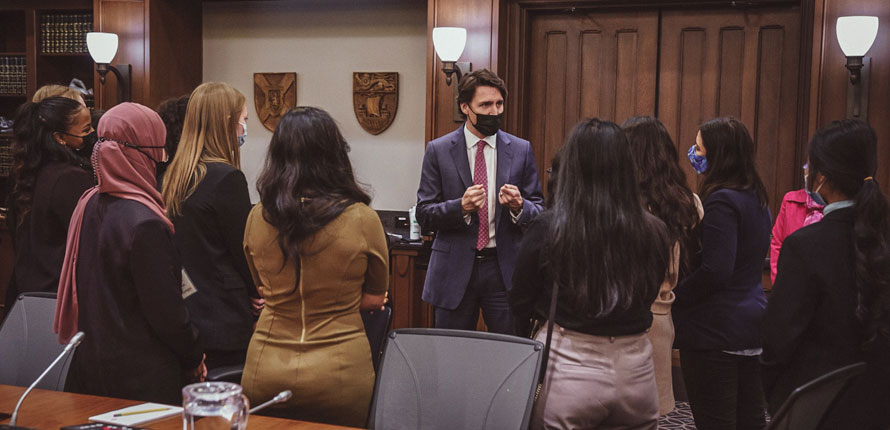
In 2021, Laurier undergraduate students voted to double their contributions to the student-led club, International Students Overcoming War, which is funded by a levy, bringing the contribution from each student at Laurier from $4 to $8 per term. In fall 2022, six international students overcoming war will begin their academic journey at Laurier, supported by the fund. In March 2022, through ISOW, Laurier also entered a five-year partnership with COMPASS Refugee Centre, a resettlement organization in Kitchener to offer the ISOW Newcomer Scholarship Program. The program will assist up to two recipients per academic year with undergraduate tuition and is designed to offset financial barriers refugee-claimant youth in Canada face. ISOW, a made-at-Laurier club, is providing leadership to the growing global conversation about higher education in emergencies, with student leaders presenting at the RewirEd Summit in Dubai in December 2021 and the UNESCO World Higher Education Conference in Barcelona in May 2022. In 2022 ISOW leaders also met with federal government officials, including a meeting with the Prime Minister, to discuss ways of expanding the program and advocate for speeding up the process to support international students impacted by war.
In summer 2021, Laurier partnered with Yuncheng University in China to offer a 12- week online Business English course to 40 third-year Yuncheng University students, led by Laurier English and Academic Foundation (LEAF) program staff and instructors. The course curriculum was designed to encourage students’ communication and confidence in English through the practice of speaking, presentations, discussion and making a business case. Student leaders from Laurier’s International Education Studies program helped deliver the course and engaged with Yuncheng University students outside of regular classes, fostering intercultural understanding and connection. The success of the Business English course saw Laurier expand the partnership, offering a professional development program to 22 faculty in Yuncheng University’s English department focused on best practices for teaching English as a second language.
In 2021-2022, geography professor and Laurier Research Chair, Alison Mountz, hosted two seasons of Displacements, a podcast from Laurier’s International Migration Research Centre. The podcast connected scholars around the world to discuss the historical contexts of migration, the history of race and colonialism, and contemporary issues of immigration, migration, and asylum seeking.
Laurier excels at creating a culture of engagement that develops the whole person and builds reciprocal community relationships by facilitating the expression, testing, and challenging of a range of perspectives and ideas grounded in reason, evidence, and frameworks of knowledge and creativity.
In late 2021, the Laurier Centre for Military Strategic and Disarmament Studies, one of Canada’s largest military history research centres, expanded to become the Laurier Centre for the Study of Canada. This reimagined research centre will facilitate and support original research on the expansive, evolving, and contested interpretations of Canada. In addition to the existing War and Society research collective, three new research collectives were added that will examine the themes of Policy Connections for Canada, Canada in our Communities, and Publics and Social Justice. The new centre brings together Laurier faculty and graduate students from more than a dozen departments in the Faculty of Arts, Faculty of Liberal Arts and Faculty of Science, as well as external research fellows from academic and community partners.
In 2021, the office of the associate vice-president: equity, diversity and inclusion (EDI), in collaboration with the Tshepo Institute for the Study of Contemporary Africa and Laurier’s Black Faculty and Staff Caucus, launched the annual Lamine Diallo EDI Speaker Series. Over 520 people attended the first three lectures, featuring experts on equity, diversity and inclusion topics. The series is named for Lamine Diallo, associate professor in the Faculty of Human and Social Sciences, a tireless champion for EDI at Laurier, and will feature three speakers per year to foster dialogue and reflection in EDI.
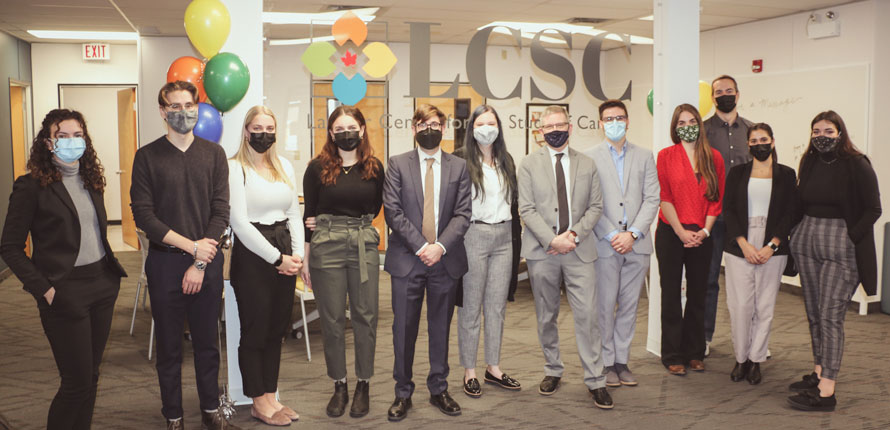
Laurier excels at creating a culture of engagement that develops the whole person and builds reciprocal community relationships by fostering a highly personalized, equitable, diverse, and inclusive community in which all members can experience the powerful sense of belonging that has distinguished Laurier throughout its history.
In the 2022-2023 academic year, Laurier will welcome four new Indigenous scholars and six new Black scholars as part of a commitment made in May 2021 to recruit no fewer than 12 tenured and tenure-track faculty appointments, six Black and six Indigenous scholars. Hiring for this initiative is ongoing. Inclusive Excellence was developed in collaboration with the Wilfrid Laurier University Faculty Association (WLUFA).
In November 2021, Laurier joined over 40 universities and colleges across the country in signing the Scarborough Charter on Anti-Black Racism and Black Inclusion in Canadian Higher Education. The Scarborough charter commits participating institutions to redressing anti-Black racism and fostering Black inclusion and guides them on actions related to four principles: Black flourishing, inclusive excellence, mutuality, and accountability. Signing the charter was an important step in Laurier’s vision for building a more inclusive community and holds the university accountable to its commitment to actions that will build a more inclusive environment, including compiling baseline data to gauge levels of underrepresentation and to provide demographics to foster inclusive practices.
The AVP EDI team developed several training materials for Laurier researchers in 2021. In July 2021, the team launched a course for all faculty who are part of hiring, tenure, and promotions committees, which provides strategies for embedding EDI into the hiring process. In August 2021, the team launched “Inclusive Research,” a course for all faculty, staff, and students involved in the research process. The course, along with the accompanying “EDI Dialogues” workshop series provided strategies for embedding EDI into research processes. The team collaborated with Teaching and Learning and Human Resources to develop recorded workshops for faculty that address Islamophobia, anti-Asian racism, anti-Black racism, and micro-aggressions in classroom spaces.
Laurier excels at preparing people for whatever challenges the future brings by expanding the range of credentials to address the needs of people at all stages of life and career and to enhance lifelong learning.
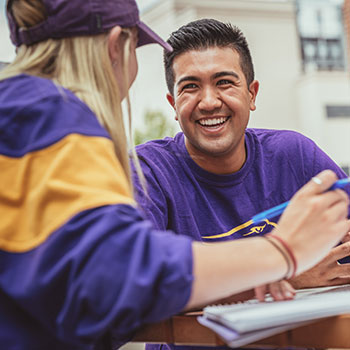
In May 2022, Wilfrid Laurier University’s Centre for Public Safety and Well-Being won two awards as part of the Canadian Association for University Continuing Education’s (CAUCE) annual awards competition. The competition recognizes credential excellence and institutions that achieve their educational objectives. The Gladue Principles: Indigenous Peoples and the Canadian Criminal Justice System non-credit certificate program won the non-credit programming under 48 hours award, and the online Global Crime and Justice certificate won the credit programming over 48 hours award. The programs are aimed for professionals in legal, social, Indigenous rights, and public safety sectors interested in systemic flaws in the Canadian justice system and promotes a culture of lawfulness through education and empowering the next generation of global justice changemakers.
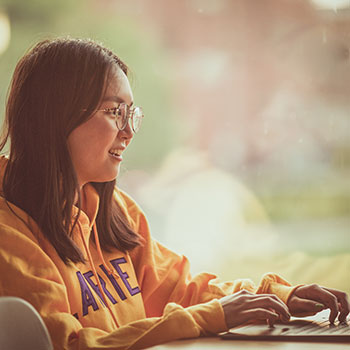
Beginning September 2022, Laurier is offering three new certificate programs that can be taken in conjunction with undergraduate degree studies. These skills-focused certificates allow students to concurrently learn in-demand skills to complement their degree program and prepare them for their future careers. The Digital Media Skills I and II Certificates, created by the Digital Media and Journalism program, provide students with hands-on, workshop-based training in digital audio, video, photography, and imaging, as well as journalistic practices. The Certificate in Geomatics, offered by the Department of Geography and Environmental Studies, is available to current students and geography graduates who wish to build applied skills in spatial data analysis, GIS, remote sensing, and digital literacy.
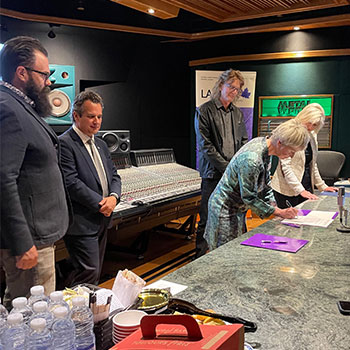
In a unique agreement between the Faculty of Music and the Mississauga-based Metalworks Institute, Laurier music students will be able to blend a degree from Laurier with a diploma from Metalworks. Students will have the opportunity to receive state-of-the-art audio engineering experience from Metalworks, alongside undergraduate music degree at Laurier. The partnership allows a reciprocal pathway for Metalworks diploma students to receive two semesters of credit (one year) towards a four-year Laurier Bachelor of Music degree, where they can spend up to three terms at Metalworks and receive an Audio Production and Engineering diploma. Students can also take specific courses of their choosing to supplement their degree. Metalworks is a postsecondary institution known for hosting top musical artists in their recording studios such as Drake, Tina Turner, Prince, David Bowie, and many others.
Laurier excels at preparing people for whatever challenges the future brings by connecting research, scholarship and creative activity with communities and across disciplines to address the most pressing local and global challenges.
Laurier excels at preparing people for whatever challenges the future brings by augmenting experiential opportunities that encourage reflection, expand knowledge, develop skills, clarify values and heighten self-awareness for all students.
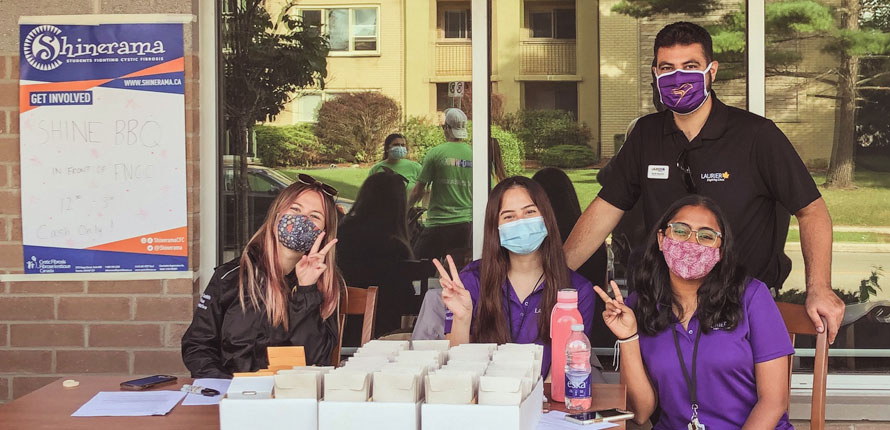
Over 2021-2022, 2900 students on both campuses were supported by Community and Workplace Partnerships with involvement in virtual and in-person placements, internships, and course-related projects. From working in partnership with the Waterloo Region District School Board to create comic strips for elementary and secondary school students to learn about social justice, to developing physical activity programs for people with developmental disabilities for the non-profit organization, KW Habilitation, and supporting children and youth organizations in Brantford, Laurier students shared generously of their skills and knowledge while earning course credit.
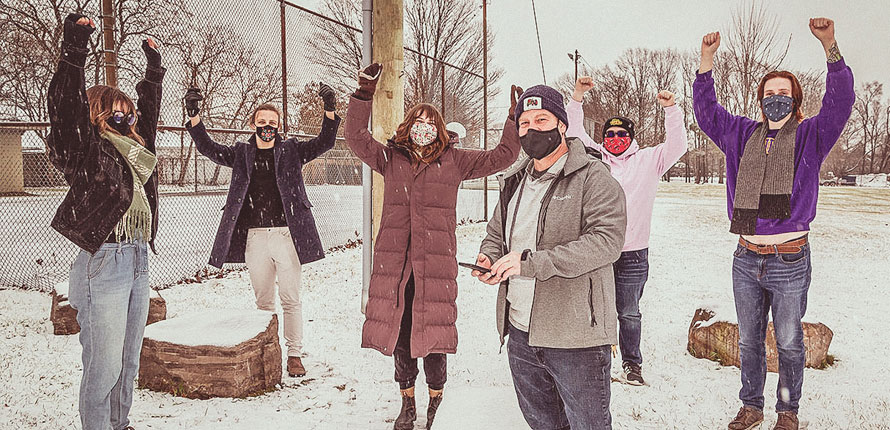
Students in the User Experience Design (UXD) program in the Faculty of Liberal Arts worked with the City of Brantford to improve the city’s neighbourhood ice rink reporting program. The students were presented with several challenges faced by the local ice rink program, including declining volunteerism, difficulty attracting new volunteers, and its outdated reporting and inspection processes. The students designed a web-based platform that streamlined digital reporting. The app was formally launched by the city in winter 2022.
Laurier excels at preparing people for whatever challenges the future brings by developing a range of competencies (knowledge, skills, and attributes) that lead to innovative and creative thinking, collaboration, adaptability, good judgement, ethical action and leadership.
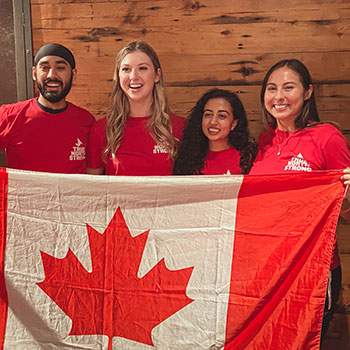
For the second year in a row, Laurier’s Waterloo Enactus team was named a runner-up at the global entrepreneurship competition in October 2021, after competing against teams from 33 countries. The student-founded ventures that garnered international attention include EarthSuds, single-use shampoo, conditioner, and body wash tablets that eliminate the need for plastic toiletry bottles, Mighty Hawks, which provides life skills and employment training for individuals with developmental disabilities through work experience at EarthSuds, and Last20, a venture that upcycles plastic bags into a binding agent for pavement. Last20 completed their first pilot project in September 2021, paving a loading dock in Brantford. This was the first plastic paving project for vehicular traffic in Ontario and only the second in Canada.
In June 2022, Jeremy Wagner, a PhD candidate in Global Governance, and recent Master of International Public Policy graduate Zach Ahmed represented Canada at the global finals of the Map the System competition. Map the System is a global competition where students use a systems lens to research social and environmental issues and then present their findings in a way that engages audiences and promotes understanding. As national finalists in the Canadian competition, Wagner and Ahmed travelled to England to compete against 45 finalist teams from around the world at Oxford University, presenting their submission Inside the System, Outside the Law: The Informal Food Economy in Nairobi, Kenya.
Laurier excels at preparing people for whatever challenges the future brings by leading the sector in environmental sustainability of our campuses and inspiring the incorporation of sustainable practices in society and the economy.
Community Psychology PhD candidate Kai Reimer-Watts and Social Psychology PhD candidate Esther Abel, under the supervision of community psychology professor Manuel Riemer and former Laurier assistant professor of psychology Simon Coloumbe, examined how workers’ personal well-being and views on sustainability were shaped by working in evolv1, Waterloo’s zero-carbon, net-positive-energy office building. Their photo and discussion-based research was featured in an online exhibit and live showing at THEMUSEUM in Kitchener and is part of a larger research program on evolv1.
For the fourth year in a row, Laurier was named one of Canada’s Greenest Employers in 2022. The award, presented by Mediacorp Canada Inc., reflects the university’s continued commitment to sustainability and green action. Highlights of Laurier’s sustainability initiatives include the Sustainable Hawk Fund, which leverages Laurier’s entrepreneurial and community spirit to integrate sustainability practices into student life with $30,000 in annual funding. The Sustainability Office has helped spearhead several sustainability initiatives around the community, including the Sustainable Hawk Fund, recycling and waste reduction programs, the Laurier Energy Efficiency Program, Zero Waste Week, the Northdale Community Garden, and several more.
Laurier’s Sustainability Office, the EcoHawks club at Laurier’s Brantford campus, and the Students’ Union worked together to have personal protective equipment (PPE) recycling bins installed across the Waterloo and Brantford campuses. The PPE collected through the bins is sterilized and formed into pellets by third-party vendor LifeCycle Revive in Brantford. The pellets can be used to create new PPE products used in healthcare settings. The bins are estimated to divert nearly 30,000 pairs of disposable gloves used by Laurier staff and students each year.
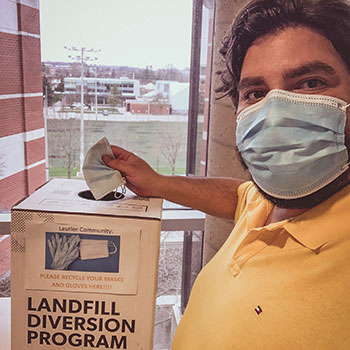
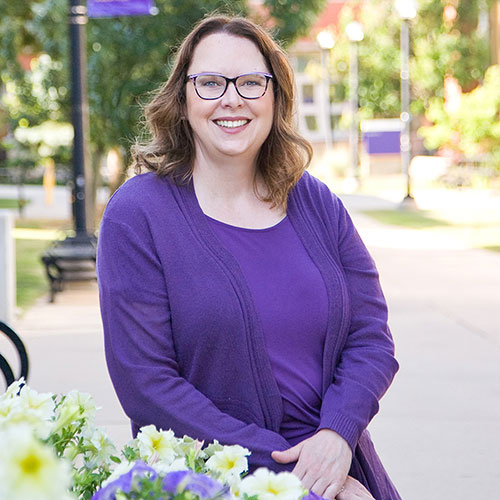
“It is the quality and engagement of our people that make Laurier an exceptional hub of teaching, learning, research, and community.”
Deborah MacLatchy